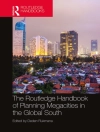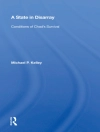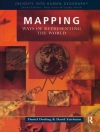This book introduces flood inundation area and flood risks assessment based on a comprehensive monitoring system using remote sensing and geographic information system technologies. Taking the 2011 flood disaster of Ayutthaya in Thailand as an example, it presents a flood intrusion zone identification method based on remote sensing technology, spatial information technology and geographic information system for flood disaster monitoring and early warning system. It introduces the study area and data, vegetation index, improved support vector machine and flood intrusion zone identification method. It also analyzes the flood remote sensing parameters and waterborne diseases, method of risk assessment of waterborne disease outbreak, waterborne disease outbreak risk monitoring based on backpropagation neural network and its expert system. It not only promotes a new interdisciplinary approach both in public health and space information technology, but also greatly supports decision makers in disaster reduction.
Cuprins
Geographical characteristics of Study area.- Datasets and data preparation.- Flooding identification by vegetation index.- Flood identification by Support Vector Machine (SVM).- Improved support vector machine classifier by Particle filter algorithm.- Flood related parameters affecting waterborne diseases.- Measure of Disease Risk.- Modeling Outbreak Risk based on Back Propagation Neural Network (BPNN) algorithm.- Application of surveillance communicable diseases risk using Expert system.- Conclusions.
Despre autor
Chunxiang Cao is a Professor of the University of Chinese Academy of Science and Institute of Remote Sensing and Digital Earth of Chinese Academy of Sciences. She is now the Director of the division of environmental health remote sensing of State Key Laboratory and the Executive Director of the center of spatial information technologies application research in public health. She has been engaged in remote sensing and environmental health research areas for 20 years. Her research interests are remote sensing technology in assessment of five elements of the ecosystem, namely forest, agriculture, water, atmosphere and the human living environment. She established the inter-discipline research direction of “Diagnosis of Environmental Health by Remote Sensing” together with peer colleagues from Boston University, Tokyo University and Kyoto University.












